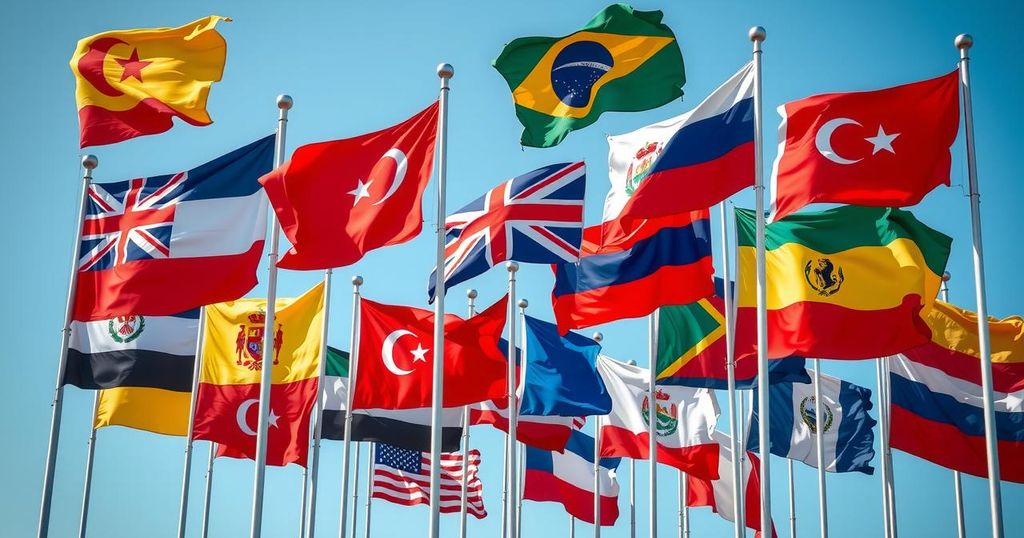South African Refugees Spark Controversy: The Left’s Uneasy Reaction

A small group of South African refugees arrived in the U.S. recently, following an executive order by Trump. Despite being a mere 59 individuals, this has stirred significant backlash from the Left, who appear to reject these refugees based on their race. Responses from influential Democrats indicate a deeper tension regarding race and asylum, as contradictions emerge in their traditional stances on refugee support.
A group of South African refugees, waving American flags, landed in the United States on Monday. This contingent of 59 individuals was granted the status of asylum-seekers following an executive order signed by President Donald Trump earlier this year. One would think the typically liberal principles, which emphasize the welcoming of refugees, would apply here. However, the reactions from Democratic leaders and left-wing media suggest otherwise.
Many Democrats appear quite upset about this development. Observers have noted that the number of refugees entering the U.S. under Trump is minuscule compared to the larger migration numbers seen under President Biden. In particular, some day-to-day stats under Biden often brought in more asylum-seekers every few minutes than Trump’s entire allowance for South African refugees.
Interestingly, rather than embracing the arrival of these refugees, the Episcopal Church has chosen to end its refugee resettlement partnership with the government. Their decision is apparently tied to a commitment to racial justice, resulting in a forfeiture of millions of dollars in partnership funds. Such actions raise questions about the underlying motivations driving this abrupt policy change.
The clear discomfort among many on the left seems to stem from the fact that these refugees are white. A notable comment was made by former Representative Donna Edwards, who indicated that the situation differs because the individuals seeking refuge are white South Africans. She cited racism as a factor fueling the conversation, pointing out the issue on MSNBC.
Former Biden campaign director Ashley Allison also entered the fray, suggesting that those not wanting to stay in South Africa could simply leave. When pushed by a conservative commentator remarking they were leaving, she suggested they should go back to Germany. This statement could be interpreted as dismissive, especially considering the complex history and context surrounding the Afrikaners.
The ancestors of these Afrikaners, Dutch settlers dating back to 1652, have greatly influenced South African society. Given their long history, calling for a return to Europe raises unsettling questions about nationalism and belonging. It seems rather extreme to impose such expectations four centuries later.
Concerns have been raised regarding the safety of Afrikaners, who are often targeted violently. Recent reports highlight numerous attacks and killings that are suspected to have racial motivations. Business magnate Elon Musk, who has South African roots, has weighed in on this issue through social media, citing the looming threat of land confiscation by the South African government.
The African National Congress, South Africa’s ruling party, has even dismissed claims of Afrikaner refugees, stating they have none. Their statement implied that the notion of white South Africans needing refuge is unfounded, suggesting instead that those leaving are escaping justice as opposed to persecution. This sort of rhetoric raises eyebrows — are they seeking to maintain power through the continued subjugation of a specific group?
The pattern appears consistent among leftist commentary: the ancestors of the Afrikaners are seen as undeserving of empathy due to their past connections to colonization and apartheid. Now, instead of promoting their stories of struggle or advocating for their rights, the narrative is shifting towards claims that helping them is, in itself, racist. It becomes an ironic twist when one considers the usual doctrine surrounding refugees — apparently, for some, applications based on race may not be welcomed.
The response from the Left regarding these Afrikaner refugees is indeed revealing. Rather than encouraging compassion and open doors for refugees, a clear sentiment emerges: for asylum, whiteness is not a common qualifier. The paradox of their reaction to these individuals is striking and illuminates deeper, perhaps uncomfortable truths regarding race and politics today.
In summary, the arrival of a small number of South African refugees in the United States has sparked significant backlash from liberal commentators and politicians. This reaction highlights a notable inconsistency in the Left’s position on asylum-seeking individuals, particularly when race enters the equation. As the discourse unfolds, it underscores a deeper tension about identity, belonging, and the nature of refugee assistance. Ultimately, the stark contrast in attitudes raises important questions about the criteria under which sympathy and support are extended in discussions of asylum and immigration.
Original Source: www.dailysignal.com






